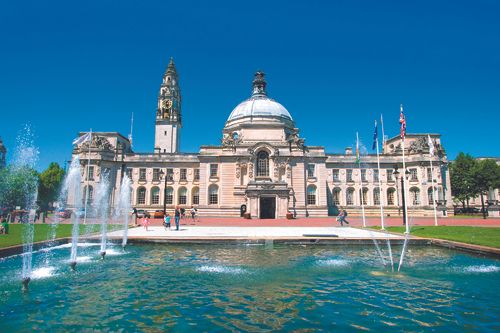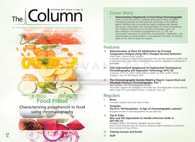15th International Symposium on Hyphenated Techniques in Chromatography and Separation Technology (HTC-15)
A preview of HTC-15, which will be held at Cardiff City Hall, Cardiff, United Kingdom, from 24–26 January 2018.
Photo Credit: Billy Stock/Shutterstock.com

A preview of HTC-15, which will be held at Cardiff City Hall, Cardiff, United Kingdom, from 24–26 January 2018.
The 15th International Symposium on Hyphenated Techniques in Chromatography and Separation Technology (HTC-15) will be held at Cardiff City Hall, Cardiff, United Kingdom, from 24–26 January 2018.
This is only the second time HTC has been held within the UK and the event is sure to be the premier analytical meeting in the UK for 2018, attracting national and internally renowned scientists. The meeting is organized by the Royal Society of Chemistry Separation Science Group with the Royal Flemish Chemical Society (KVCV). Full meeting details can be found at http://htc-conference.co.uk/.
The conference will include five plenary lectures, 16 keynote lectures, eight tutorial lectures, 48 oral presentations, and 24 early career researcher (ECR) presentations plus daily poster sessions. The programme will include topics such as Big Data, Fundamentals and Exploiting Separation Science, (R)evolutions in Biopharmaceutical Analysis, Food and Drink, Environmental, Comprehensive Chromatography, and many more. There will also be a dedicated ECR programme as one of the three parallel sessions. Sponsorship has been secured for ECRs and there is free registration for presenters in this session. Details can be found at https://www.ilmexhibitions.com/htc/bursary-guidelines/.
Conference registration (https://www.ilmexhibitions.com/htc/registration/) is now open. The aim is for 50–60% of presentations to be via abstract submission so please submit your abstracts now https://www.ilmexhibitions.com/htc/abstract-submission/.
Alongside the core scientific programme, the symposium will host an attractive technical exhibition where companies active in the field will present their latest developments in instrumentation, software, and applications related to the hyphenation of separation, detection, and sample preparation techniques topped with technical seminars. Thirteen companies have signed up already (https://www.ilmexhibitions.com/htc/floorplan/) and more are expected to follow shortly. If you are interested in exhibiting at HTC-15 please follow the link on the website to secure your place.
Cardiff is the closest capital city to London and Cardiff Airport is just a 20 min journey, easily accessible by car or shuttle. Bristol International Airport is also only 1 h away with fights from 112 different countries.
If travelling via London remember to book your onwards journey in advance. We can offer an exclusive deal with Great Western Railway (GWR). This offers reduced rates for delegates travelling at any time to Cardiff Central Station from all main GWR stations, including London Paddington, as well as many connecting routes to Great Western Railway from the home counties, see https://www.ilmexhibitions.com/htc/location-direction/.
The conference will be preceded by two short courses on the 23rd January 2018, one covering Practical SFC and the other Biopharmaceuticals.
On behalf of the Organizing Committees I look forward to welcoming you to HTCâ15 in the historic city of Cardiff and to City Hall. It is the centrepiece of one of the world’s finest civic centres, an area of impressive buildings, landscaped gardens, and tree-lined avenues.
Professor John Langley, Chair of HTC-15
E-mail:info@ilmexhibitions.comWebsite: www.ilmexhibitions.com/htc

Best of the Week: Food Analysis, Chemical Migration in Plastic Bottles, STEM Researcher of the Year
December 20th 2024Top articles published this week include the launch of our “From Lab to Table” content series, a Q&A interview about using liquid chromatography–high-resolution mass spectrometry (LC–HRMS) to assess chemical hazards in plastic bottles, and a piece recognizing Brett Paull for being named Tasmanian STEM Researcher of the Year.
Using LC-MS/MS to Measure Testosterone in Dried Blood Spots
December 19th 2024Testosterone measurements are typically performed using serum or plasma, but this presents several logistical challenges, especially for sample collection, storage, and transport. In a recently published article, Yehudah Gruenstein of the University of Miami explored key insights gained from dried blood spot assay validation for testosterone measurement.
Determination of Pharmaceuticals by Capillary HPLC-MS/MS (Dec 2024)
December 19th 2024This application note demonstrates the use of a compact portable capillary liquid chromatograph, the Axcend Focus LC, coupled to an Agilent Ultivo triple quadrupole mass spectrometer for quantitative analysis of pharmaceutical drugs in model aqueous samples.